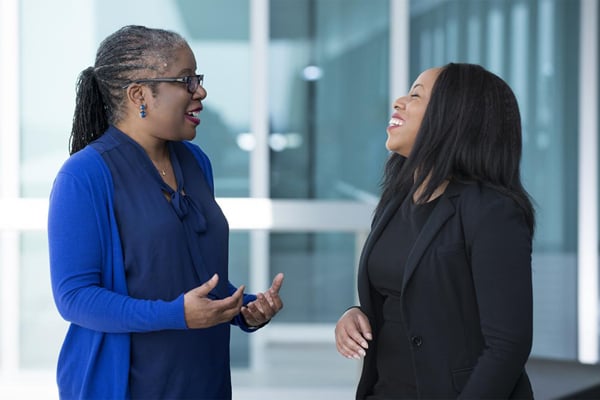Prime
Encouraging open door policy is key

Wycliffe Nsheka: The country director at Finn Church Aid
What you need to know:
Wycliffe Nsheka: The country director at Finn Church Aid, an NGO that specialises in supporting local communities speaks out on the highs and lows of being a manager.
How would you describe your experience as a country director during the pandemic?
The pandemic came with quite a number of challenges. Our work at Finn Church Aid (FCA) is supported by donors and has grant commitments that need to be fulfilled within a specific period of time. It was challenging to adjust our work during the pandemic but as a country programme, we redesigned our activities so that we could implement them within the standard operating procedures set by the government. We were also able to develop our own business continuity plan that suited the operational context at that time.
What have been the greatest accomplishments of your career?
The rapid growth of FCA in Uganda under my leadership. FCA country program now employs more than 2,000 employees countrywide. I am also proud to have been part of localising foreign supported programmes which still stand.
Secondly, earlier in my career, I led a programme on HIV/Aids competence at continental level, managing eastern and southern Africa. That was between 2008 and 2012. We developed tools and materials that supported churches of different denominations to manage the HIV and Aids epidemic. I started with the Lutheran World Federation. The project significantly contributed to bringing down the HIV prevalence rate from 25 percent in 1990 to 12 percent by mid-2000.
What has been your greatest challenge so far?
Managing rapid growth has been one of my greatest challenges so far. However, I managed to overcome this by putting systems in place, identifying risks and seeking solutions early enough. The pandemic also posed a challenge as it changed the way we work.
What would you say was a major turning point in your career?
When my roles changed from managing one department in an organisation operating in one district to being the regional programme coordinator for eastern and southern Africa at the Helsinki Deaconess Institute.
What kind of manager are you?
I am a problem solver and decisive manager.
How have you contributed to the growth in previous companies you have worked for?
The kind of development work we do, calls for being innovative in order to stay relevant to the communities and people we work with.
I have also learnt from failures and adjusted our programmes to make sure they are successful. I also work smart, mentor the team such that they learn skills and go an extra mile to reach out to different stakeholders. I feel I have made a significant contribution in the humanitarian and development sector.
Take us through your career journey?
I started development work in 2001 with Lutheran World Federation where I served in different positions in the HIV and Aids sector. In 2009, I moved to Nairobi as a Regional Programme Coordinator with Helsinki Deaconess Institute to oversee eastern and Southern Africa working with 40 partners in both regions.
In May 2012, I moved to Finn Church Aid Regional office in Nairobi where I worked until June 2014 as the Regional Programme Coordinator for East Africa. From there, I came to open the FCA Uganda office as the country manager and later country director.
How have you managed to keep a healthy relationship with your employees?
I have an open door policy that encourages effective communication between my staff and I.
I keep a professional distance, appreciate and recognise my employees with positive feedback to make them feel that they are part of the team. I also have regular one-on-one interactions with my staff.
What are some of the challenges you face in your line of work?
About 80 percent of Finn Church Aid’s work is targeting refugees and the challenge is that they have more needs that keep growing. We basically support education for refugees. When you talk to refugee children and youth and you hear the dreams they have, you feel challenged and wonder whether they will ever achieve these big dreams.
Funding is a limiting factor as our work is based on grants from different donors.
Also, managing a big workforce can be challenging. You can never know which staff want to build a career with the organisation, others join for different reasons or just to earn a salary. As a leader and accounting officer, the overall responsibility lies in my hands. Mistakes cannot be avoided as I do not work alone.
Having been a difficult period worldwide with the pandemic. How would you rate the readiness of FCA to adapt to the changing times?
Finn Church Aid’s global strategy is to work in fragile countries. Much as Uganda is not a fragile country but when you look at our activities and the target beneficiaries, they are fragile in nature, for example the refugees, vulnerable women, marginalised youth etc. For us at FCA, this pandemic was similar to the context in which we operate in. Globally, we work in disaster affected communities and the contexts keep changing. We were very active in Liberia during the Ebola crisis so FCA is always very quick at making business continuity plans and adjusting our work to suit the current needs. Therefore, FCA was able to adjust and to adapt to the changing situation.
What are your personal goals and how do these align with your job?
One of my goals is being an accountable and responsible leader. As an accountable leader, I clearly communicate my goals, objectives, and key results with my team to foster alignment and team focus. I also have a goal of building a quality brand that speaks for itself.




